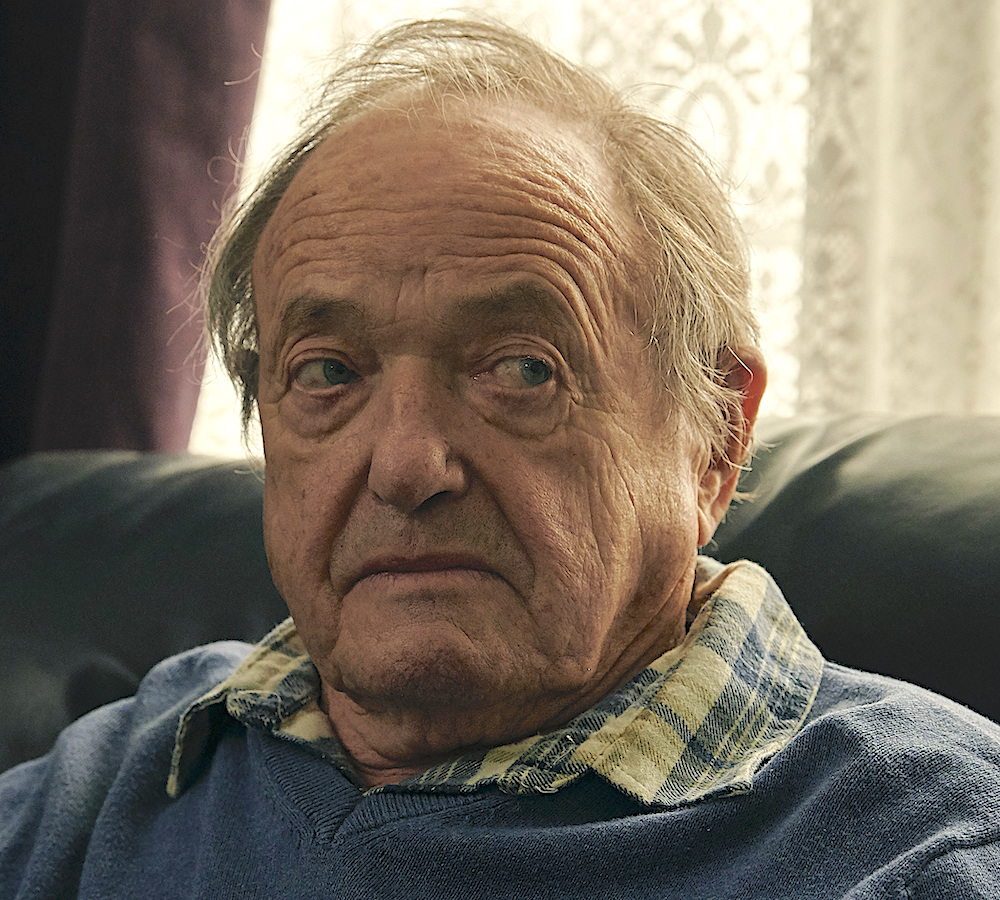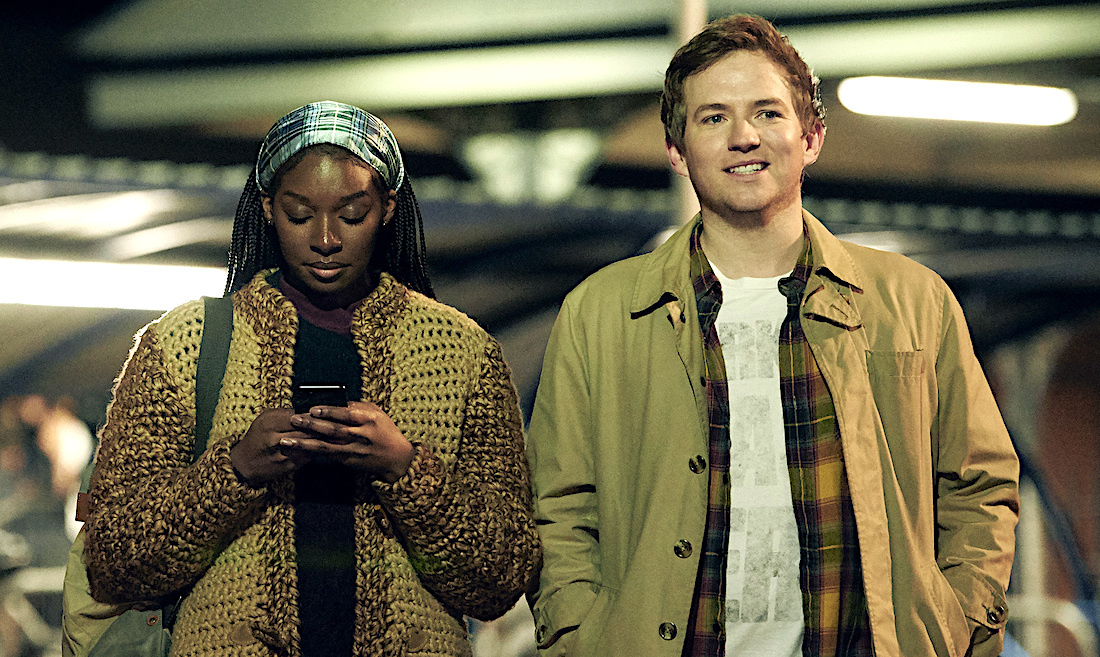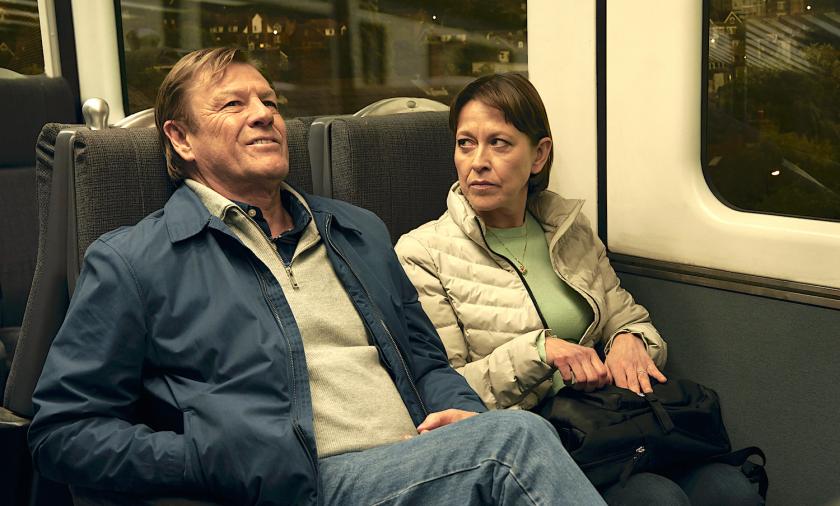The gifted writer-director Stefan Golaszewski (Him and Her, Mum) has surpassed himself with his latest drama series, Marriage. Given hour-long episodes to play with, rather than the usual half-hour, he has created an unfeasibly rich four-parter out of the simplest of means.
We are in Golaszewski’s usual world of bedded-in domestic routine, where characters often hide their feelings and assume it’s just what you do. It looks like a comedy of modern manners, but it’s a minefield. Tonally, it’s in gradations of beige, pale grey and watery green, both visually and emotionally; then, much like the way brief pops of intense colour appear in its palette, the dialogue suddenly explodes, before retreating into banality again.
To negotiate this drama-world requires the finely tuned acting skills of major players, especially in the lead roles, which is what Golaszewski gets – Russell Tovey and Sarah Solemani in Him and Her, Lesley Manville and Peter Mullan in Mum. This time it’s Sean Bean and Nicola Walker, and neither has been more impressive.
 As Ian and Emma, they go through the motions of their marriage hiding behind toothy insta-smiles, but neither can hoodwink the other for long with this ploy. The opening sequence shows them in an airport cafe, where Ian is trying not to be crabby because he wanted a jacket potato and Emma got him chips instead. She is quick to realise it isn’t the potato that’s bothering him (he ate all the chips, after all, she points out) but nerves about the flight. The row hilariously escalates as they settle in on the plane, the volume rising with each volley, but suddenly he reaches out across the aisle to grip her hand during take-off. And you realise Emma knows her husband of almost 27 years all too well, while he is happy to let the situation erupt, then resolve itself.
As Ian and Emma, they go through the motions of their marriage hiding behind toothy insta-smiles, but neither can hoodwink the other for long with this ploy. The opening sequence shows them in an airport cafe, where Ian is trying not to be crabby because he wanted a jacket potato and Emma got him chips instead. She is quick to realise it isn’t the potato that’s bothering him (he ate all the chips, after all, she points out) but nerves about the flight. The row hilariously escalates as they settle in on the plane, the volume rising with each volley, but suddenly he reaches out across the aisle to grip her hand during take-off. And you realise Emma knows her husband of almost 27 years all too well, while he is happy to let the situation erupt, then resolve itself.
Why are we watching this ordinary-seeming couple, who live in an unassuming detached brick house in an unnamed town, arguing about food? It’s part of Golaszewski’s skill set that he can make everyday life so pregnant with poignancy and significance. Beneath all the prosaic verbiage, there is usually a big heart in pain. As with Emma and Ian. He recently lost his mother, then his job; she has to parry the sulky manipulations of her widower father (more fine playing from James Bolam, pictured above), who wants her undivided attention. There are secret sorrows in their family history, too, though they have a seemingly well adjusted black adopted daughter, Jess (Chantelle Alle), a wannabe singer-songwriter.
In this small domestic arena Golaszewski unshowily interrogates big ideas: how should people behave, especially married people? Is openness always good, pretence always bad? Is marriage the opposite of freedom? What drives the drama the most, though, is the palpable feeling that he loves his characters, however unglamorous.
The dramatic terrain unfolds in gentle touches we recognise with a wry smile – the escape into loading the dishwasher when problems lurk, the shared jokes that still have some currency after a quarter of a century, the moment when words fail and only a big hug will do. Ian, we come to see, has had his life upended by redundancy and doesn’t know which way is up yet. He is bored and aimless, scaring strangers with his desire to connect with them, while pretending he’s having a good day.
There is real pathos in watching Bean’s manly frame trying to make its presence felt, while he clearly senses he is invisible or unpalatable to the younger people around him, obsessed with their phones. Even his daughter greets him less avidly, he notes, if she is with her smart-arse record producer boyfriend, Adam (Jack Holden, pictured below with Chantelle Alle), a man with worryingly aggressive opinions about his role in her life. Emma instantly dislikes him for demanding more salad, then not eating it. Under Golaszewski’s microscope we can’t help seeing a coercive controller in embryo.
 Emma’s role as an office manager brings her a degree of independence – not least from Ian, who is instinctively jealous of her smarmy young solicitor boss, Jamie (Henry Lloyd-Hughes). Jamie is the kind of man who can reel off the performance stats of his expensive car, but rudely swerves important questions; he has his own devils to beat. Emma is dangerously keen to impress him: the woman aghast at the price of everything these days is suddenly paying £3 for extra avocado in a salad like the one Jamie has just ordered.
Emma’s role as an office manager brings her a degree of independence – not least from Ian, who is instinctively jealous of her smarmy young solicitor boss, Jamie (Henry Lloyd-Hughes). Jamie is the kind of man who can reel off the performance stats of his expensive car, but rudely swerves important questions; he has his own devils to beat. Emma is dangerously keen to impress him: the woman aghast at the price of everything these days is suddenly paying £3 for extra avocado in a salad like the one Jamie has just ordered.
Throughout, Bean and Walker deploy their expressive faces like ultra-sensitive weather maps, cloudiness and sun registering in turn without a word being uttered. They can silently lie on a sofa, watching television and devouring prawn crackers, and you can’t take your eyes off them. Watch out for an extraordinary wordless sequence on a cemetery bench that has to rank as one of the great TV drama scenes.
It’s not just the acting that impresses. There’s an almost art-house zing to the pacing and editing, an instinctive feel for when to cut or cross-cut a scene, when to play it in total silence or drown its dialogue in the noise of drills and sirens. Another masterstroke is the Pulitzer-winning opening and end-credits theme: part of the Partita for Eight Voices by the young American Caroline Shaw, which weaves spoken vocal lines of relentless instructions – “To the side, to the side, and around, turn around, to the midpoint” – into a cacophony. Inside this frame, Emma and Ian soldier on, hand in hand, as their personal cacophony builds; from one angle, small and impotent, from another, heroic. Magnificent.















Add comment